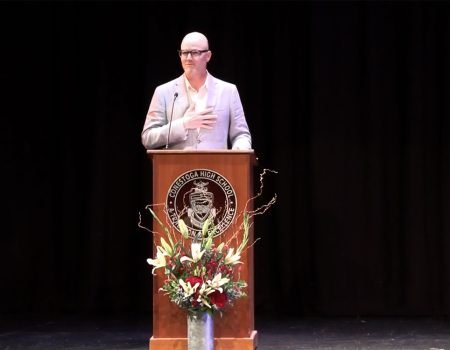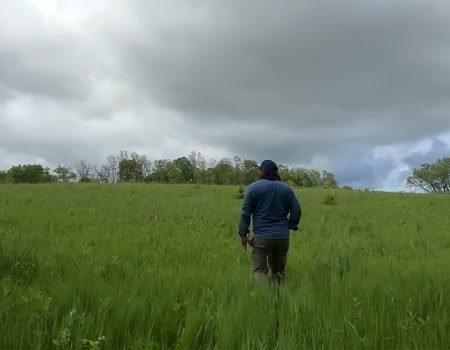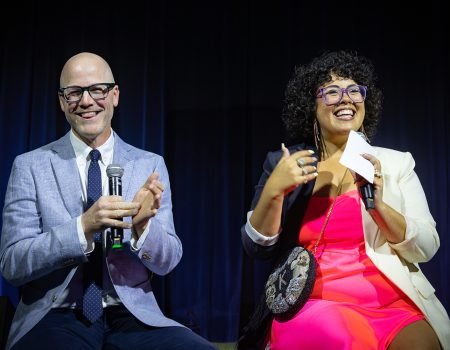Alberto Mendoza: Bridge Builder
Alberto Mendoza is a master class in turning challenges into opportunities.
As a Mexican-American teenager growing up in San Diego, California, Alberto was flummoxed by the lack of representation at Montgomery High School.
“The high school was about 65% Mexican kids,” he explains. “But the Filipino kids ran all the activities: they ran the newspaper, the yearbook, all the activities. And I wondered why.”
Alberto launched La Voz Azteca, a Spanish-language newspaper that publishes today.
Twenty five years later, when Alberto experienced a shortage of LGBTQ role models in the culture around him, he launched Honor41, reclaiming what had been a slur in Mexican communities, in order to make the mentionable manageable.
“For that kid who’s coming out, who has nowhere to turn or doesn’t know what it’s going to be like to be LGBTQ, maybe they don’t know who to ask,” he says. “They can stumble upon these interviews of these individuals from all walks of life, all Latino, and talk about that experience. Then they’re hopefully gonna have a greater chance to a normal life.”
In 2019, as COVID’s impact over-indexed in Latinx communities, Alberto – then the Executive Director of the National Association of Hispanic Journalists, and catalyzed by the Media Transformation Challenge at the Poynter Institute for Journalism – founded Palabra, an innovative media platform designed to represent and advocate for NAHJ journalists and their communities.
“I see myself as a bridge,” he says. “Helping people get to where they need to go. Sometimes it’s opening the door to get up, and sometimes it’s opening the door to cross the way.”
This week, the recently-appointed Managing Director for the John S. Knight Journalism Fellowships at Stanford welcomes his second class of fellows, all of whom will surely benefit from his experience, and bias towards action.
“If we wait,” he says, “it’s just not gonna happen. Make it happen.”



